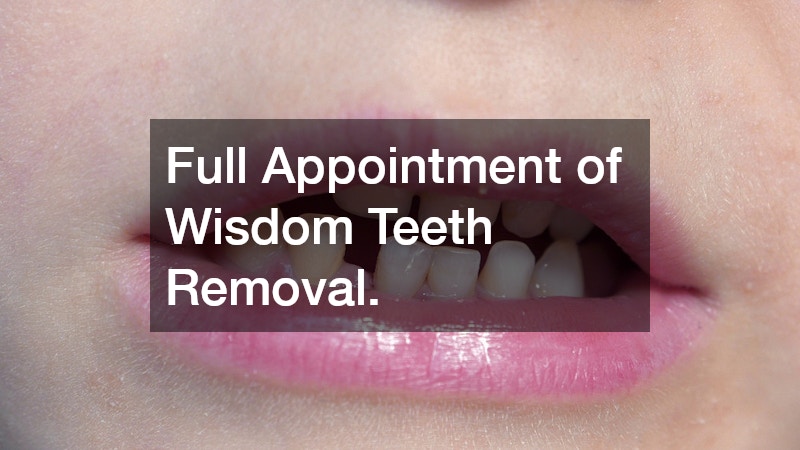Wisdom Teeth Removal: What You Need to Know
Wisdom teeth removal is one of the most common oral surgeries, typically performed in the late teens or early adulthood. While it may sound intimidating, the procedure is often straightforward and can significantly benefit your long-term dental health. Whether your dentist has recommended removing your wisdom teeth or you’re simply preparing for the possibility, understanding the process is key to feeling confident and informed.
In this article, we’ll break down what wisdom teeth are, why they often need to be removed, what to expect during the procedure, and how to recover smoothly.
What Are Wisdom Teeth?
Wisdom teeth are the third set of molars located at the back of your mouth. Most people develop four—two on the top and two on the bottom—but some may have fewer, more, or none at all.
They typically emerge between the ages of 17 and 25, a time often referred to as the “age of wisdom,” hence the name.
Unlike other teeth, wisdom teeth can cause problems because there’s often not enough room in the mouth to accommodate them. This lack of space can lead to a variety of dental issues.
Why Wisdom Teeth Are Removed
Many people assume wisdom teeth only need to be removed if they hurt, but that’s not always the case. Dentists usually recommend removal to prevent future problems, even if the teeth aren’t causing pain right away.
Here are common reasons for wisdom teeth removal:
-
Impaction: When wisdom teeth don’t fully emerge through the gums, they are considered impacted. This can lead to swelling, infection, and damage to neighboring teeth.
-
Crowding: Wisdom teeth can shift other teeth out of alignment as they grow, ruining years of orthodontic work.
-
Tooth Decay and Gum Disease: Because they are located far back in the mouth, wisdom teeth are harder to clean, making them more prone to cavities and gum problems.
-
Cysts or Tumors: In rare cases, untreated impacted wisdom teeth can lead to cysts or other growths in the jawbone.
To determine whether removal is necessary, your dentist will examine your teeth using X-rays to assess positioning and potential complications.
What to Expect During the Procedure
Wisdom teeth removal is usually done in a dental office or oral surgery clinic. Depending on the complexity of the extraction and your comfort level, the procedure can involve:
-
Local Anesthesia: You stay awake, but the area is numb.
-
Sedation Anesthesia: You’re semi-conscious or asleep during the procedure.
-
General Anesthesia: You are fully asleep, typically used in more complex or multiple tooth extractions.
Once numb or sedated, the dentist or oral surgeon will:
-
Make an incision in the gum (if the tooth is impacted).
-
Remove bone blocking access to the tooth root, if necessary.
-
Extract the tooth, often in pieces to make removal easier.
-
Clean the site and stitch the incision closed (if needed).
-
Place gauze to control bleeding and help clot formation.
The entire process usually takes less than an hour.
Aftercare and Recovery
Recovery from wisdom teeth removal typically takes about 3 to 5 days, though full healing of the surgical site can take a few weeks.
Post-Surgery Tips:
-
Rest: Plan to take at least a day or two off from work or school.
-
Ice Packs: Use them on your cheeks to reduce swelling during the first 24-48 hours.
-
Pain Management: Your dentist may prescribe pain medication or recommend over-the-counter options.
-
Diet: Stick to soft foods like yogurt, soup, mashed potatoes, and smoothies. Avoid using straws, which can dislodge blood clots and lead to dry socket.
-
Oral Hygiene: Gently rinse your mouth with warm salt water starting the day after surgery, but avoid brushing near the extraction site until it has healed.
Potential Complications
While wisdom teeth removal is generally safe, like any surgical procedure, there can be risks:
-
Dry Socket: A painful condition where the blood clot dislodges, exposing the bone.
-
Infection: Caused by bacteria entering the extraction site.
-
Nerve Damage: Rare, but it can lead to temporary or permanent numbness in the tongue, lips, or chin.
-
Sinus Issues: In upper wisdom tooth extractions, there’s a slight chance of affecting the sinuses.
It’s important to follow all aftercare instructions and notify your dental provider if you experience severe pain, prolonged bleeding, fever, or unusual swelling.
When to Talk to a Dentist
Even if your wisdom teeth aren’t bothering you, regular dental checkups are essential to monitor their development. X-rays can reveal potential issues before symptoms begin.
The best time to consult a dentist about wisdom teeth removal is during your late teens or early twenties. Younger patients generally heal faster and experience fewer complications.
Conclusion
Wisdom teeth removal is a preventive measure that can save you from future dental pain, misalignment, and oral health issues. Although the idea of surgery may feel intimidating, it’s a common and often necessary step in maintaining a healthy smile.
Consulting your dentist early and following proper aftercare will help ensure a smooth experience and recovery. With the right preparation and care, wisdom teeth removal can be just another small step in protecting your long-term dental health.



